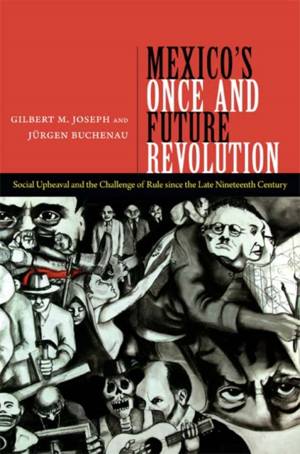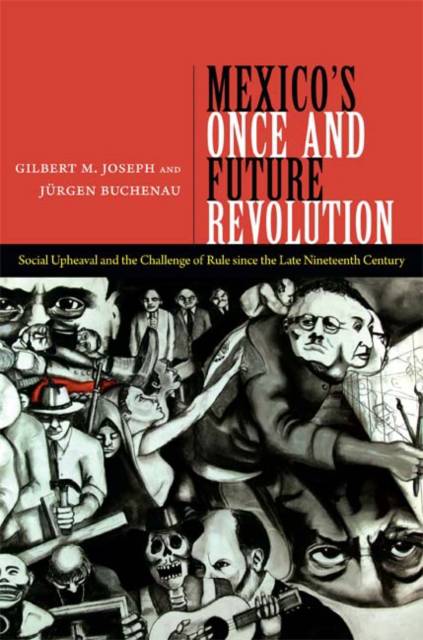
- Afhalen na 1 uur in een winkel met voorraad
- Gratis thuislevering in België vanaf € 30
- Ruim aanbod met 7 miljoen producten
- Afhalen na 1 uur in een winkel met voorraad
- Gratis thuislevering in België vanaf € 30
- Ruim aanbod met 7 miljoen producten
Zoeken
Mexico's Once and Future Revolution
Social Upheaval and the Challenge of Rule since the Late Nineteenth Century
Gilbert M Joseph, Jurgen Buchenau
Hardcover | Engels
€ 157,45
+ 314 punten
Uitvoering
Omschrijving
In this concise historical analysis of the Mexican Revolution, Gilbert M. Joseph and Jürgen Buchenau explore the revolution's causes, dynamics, consequences, and legacies. They do so from varied perspectives, including those of campesinos and workers; politicians, artists, intellectuals, and students; women and men; the well-heeled, the dispossessed, and the multitude in the middle. In the process, they engage major questions about the revolution. How did the revolutionary process and its aftermath modernize the nation's economy and political system and transform the lives of ordinary Mexicans? Rather than conceiving the revolution as either the culminating popular struggle of Mexico's history or the triumph of a new (not so revolutionary) state over the people, Joseph and Buchenau examine the textured process through which state and society shaped each other. The result is a lively history of Mexico's "long twentieth century," from Porfirio Díaz's modernizing dictatorship to the neoliberalism of the present day.
Specificaties
Betrokkenen
- Auteur(s):
- Uitgeverij:
Inhoud
- Aantal bladzijden:
- 264
- Taal:
- Engels
Eigenschappen
- Productcode (EAN):
- 9780822355175
- Verschijningsdatum:
- 4/09/2013
- Uitvoering:
- Hardcover
- Formaat:
- Genaaid
- Afmetingen:
- 157 mm x 234 mm
- Gewicht:
- 498 g

Alleen bij Standaard Boekhandel
+ 314 punten op je klantenkaart van Standaard Boekhandel
Beoordelingen
We publiceren alleen reviews die voldoen aan de voorwaarden voor reviews. Bekijk onze voorwaarden voor reviews.







